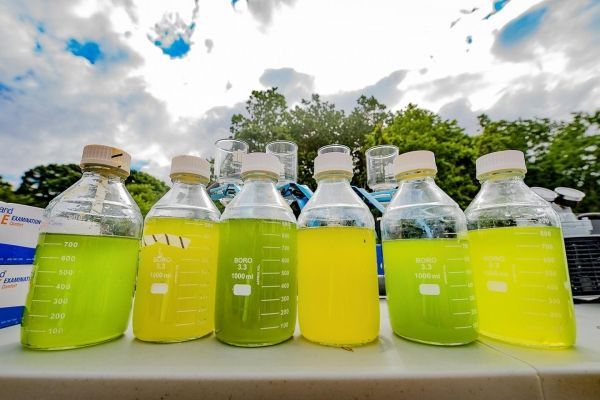A diverse mix of species improves the stability and fuel-oil yield of algal biofuel systems, as well as their resistance to invasion by outsiders, according to the findings of a federally funded outdoor study by University of Michigan researchers.
U-M scientists grew various combinations of freshwater algal species in 80 artificial ponds at U-M’s E.S. George Reserve near Pinckney in the first large-scale, controlled experiment to test the widely held idea that biodiversity can improve the performance of algal biofuel systems in the field.
Overall, the researchers found that diverse mixes of algal species, known as polycultures, performed more key functions at higher levels than any single species—they were better at multitasking. But surprisingly, the researchers also found that polycultures did not produce more algal mass, known as biomass, than the most productive single species, or monoculture.
“The results are key for the design of sustainable biofuel systems because they show that while a monoculture may be the optimal choice for maximizing short-term algae production, polycultures offer a more stable crop over longer periods of time,” said study lead author Casey Godwin, a postdoctoral research fellow at U-M’s School for Environment and Sustainability.
Read more at University of Michigan
Image: These are samples collected from large tanks containing mixes of various freshwater algal species. The green samples are healthy, while the yellow samples were contaminated by a fungal disease. The biofuels experiment was conducted in the summer of 2016 at U-M's E.S. George Reserve near Pinckney, Mich (Credit: Daryl Marshke/Michigan Photograp)


